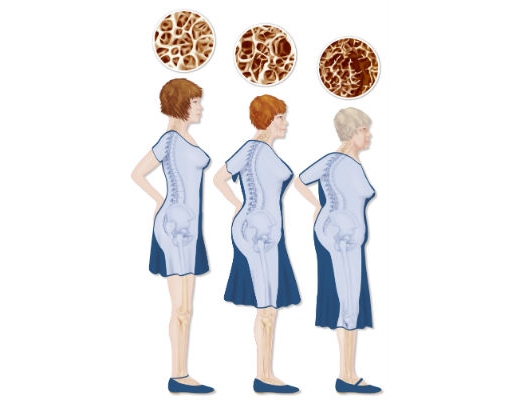The Assessment and Management of Vertebral Fractures in Osteoporosis course



This session explores the diagnosis and management of vertebral fractures secondary to osteoporosis.
Objectives
By the end of this session, you will be able to:
- Explain the importance of diagnosing and treating vertebral fractures
- Identify patients with features suggestive of vertebral fracture in order to make a diagnosis
- State the reasons for delay in the diagnosis of vertebral fractures
- Describe the pharmacological and non-pharmacological management options for pain secondary to vertebral fractures
- Identify patients for whom referral for consideration of invasive interventions may be appropriate
Osteoporosis is a condition that is characterised by a loss of bone tissue and disruption in bone formation. This results in spongy (porous) bone which is weaker and thus at risk of breaking (fracture). Osteoporosis itself does not cause any symptoms and often the first time a patient learns they have the condition is following a fracture which can cause both acute and chronic pain.

Ashley is an Academic Clinical Fellow in Rheumatology currently training in the West Midlands region. His main research interests are in osteoporosis and osteoarthritis. He is particularly interested in patient education and information needs.


Zoe is an Honorary Consultant Rheumatologist at the Haywood Rheumatology Centre and Clinical Lead for the osteoporosis service for North Staffordshire. She chairs the Midlands Bone Interest Group and sits on various committees within the Royal Osteoporosis Society, including the research grants and conference committees.
Zoe is also a Senior Lecturer at the Primary Care Centre Versus Arthritis at Keele University, where she leads the osteoporosis research group and is currently involved in a range of research studies with qualitative and quantitative methods, with specific research interests in primary care management of osteoporosis and communication in the consultation.
- Anaesthesia Fundamentals | Physiology | Body Tempe...
- Posted By eIntegrity Healthcare e-Learning
- Posted Date: 2025-01-24
- Location:Online
- This session examines the control of body temperature. It covers physiological aspects of temperature homeostasis including various mechanisms and body systems that are involved in regulation.
- Anaesthesia Fundamentals | Physiology | Physiology...
- Posted By eIntegrity Healthcare e-Learning
- Posted Date: 2025-01-24
- Location:Online
- This session will enable you to understand the pathogenesis of obesity and its effects on various organ systems.
- Anaesthesia Fundamentals | Physiology | Osmolarity...
- Posted By eIntegrity Healthcare e-Learning
- Posted Date: 2025-01-24
- Location:Online
- This session describes the physical processes by which molecules traverse cell membranes.
- Anaesthesia Fundamentals | Physiology | Body Water...
- Posted By eIntegrity Healthcare e-Learning
- Posted Date: 2025-01-24
- Location:Online
- In this session you will gain an understanding of the fluid compartments and the factors involved in the distribution of fluid between them. This is a vital skill which will enable you to adequately assess and treat sick patients and help you to choose wh
- Anaesthesia Fundamentals | Physiology | Cellular M...
- Posted By eIntegrity Healthcare e-Learning
- Posted Date: 2025-01-24
- Location:Online
- This session describes the structure, function and mechanism of action of enzymes. Their role in regulation and cellular physiology is identified.







